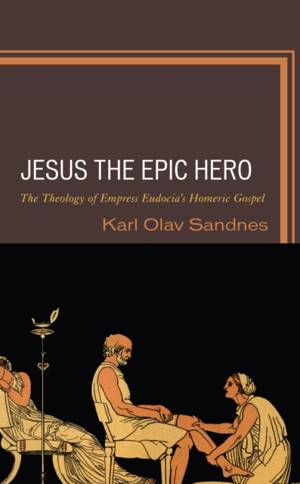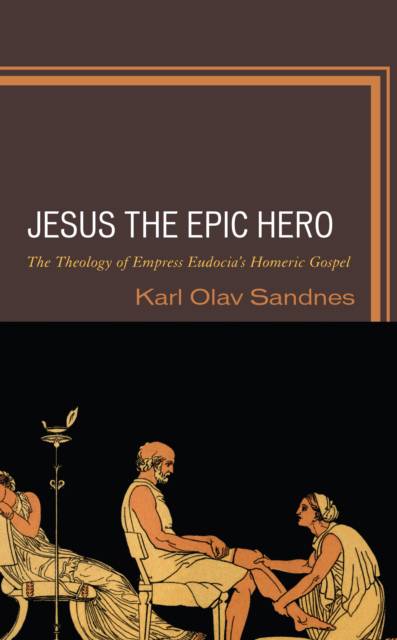
- Afhalen na 1 uur in een winkel met voorraad
- Gratis thuislevering in België vanaf € 30
- Ruim aanbod met 7 miljoen producten
- Afhalen na 1 uur in een winkel met voorraad
- Gratis thuislevering in België vanaf € 30
- Ruim aanbod met 7 miljoen producten
Zoeken
Jesus the Epic Hero
The Theology of Empress Eudocia's Homeric Gospel
Karl Olav Sandnes
Hardcover | Engels
€ 186,95
+ 373 punten
Omschrijving
The ancient cento-genre was prone to be used on all kinds of subjects. New texts were created out of the classical epics. Empress Eudocia followed this practice and composed the story of Jesus in lines lifted almost verbatim from Homer's epics. Jesus and his relevance to her audience is thus presented within the confines of style and vocabulary offered by the Iliad and Odyssey. The lines picked to convey her theology are often clustered around key Homeric motifs or type scenes, such as warfare, homecoming, feast, reconciliation, hospitality. Jesus waging war against all evil and Hades in particular runs throughout this Homeric and simultaneously biblical epic. The story starts in the Old Testament which is conceived as a divine counsel on Mt. Olympus where a plan to save sinful humanity is presented. The narrative then follows the biographic lines of the canonical gospels, with John's Gospel holding pride of place in the way she renders and interprets the Jesus-story. The story told suspends both the geography and time of Jesus. Eudocia preaches the story she tells. She emerges in this poem as one of the most, if not the most prolific female theologian and preacher in the first Christian centuries.
Specificaties
Betrokkenen
- Auteur(s):
- Uitgeverij:
Inhoud
- Aantal bladzijden:
- 206
- Taal:
- Engels
Eigenschappen
- Productcode (EAN):
- 9781666908626
- Verschijningsdatum:
- 29/08/2022
- Uitvoering:
- Hardcover
- Formaat:
- Genaaid
- Afmetingen:
- 152 mm x 229 mm
- Gewicht:
- 471 g

Alleen bij Standaard Boekhandel
+ 373 punten op je klantenkaart van Standaard Boekhandel
Beoordelingen
We publiceren alleen reviews die voldoen aan de voorwaarden voor reviews. Bekijk onze voorwaarden voor reviews.








